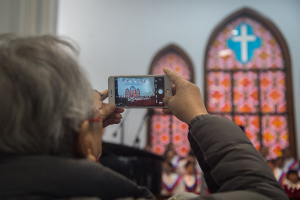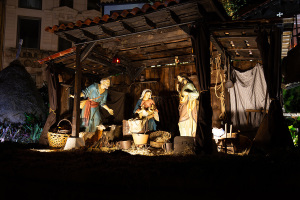Christians in Morocco, Egypt Show Solidarity With Muslims During Ramadan
Eid al-Fitr, which marked the end of Ramadan, has concluded. The occasion was successful in Morocco with the initiative of three Abrahamic faiths that embarked on a project that provided food aid to needy Muslim families for the holiest month in the Islamic calendar.
In a sign of interfaith cooperation, the International Fellowship of Christians and Jews (IFCJ) partnered with Jeunesse Chabad Maroc and the Muslim student group Mimouna Association to distribute 1,500 breakfast meals in an effort to "build bridges" between Jews, Christians and Muslims during Ramadan.
The food was distributed to low-income families in Casablanca and Rabat. Each basket contained traditional Ramadan food including dates, tea, lentils, chicken, peas and other staples. IFCJ also gave away food and clothing vouchers to destitute Arab families in Israel for Ramadan.
Islam is Morocco's constitutionally established state religion, with 93 percent of the population being Muslims. But Moroccan Jews also constitute an ancient community. Jews and Muslims coexisted with few problems since the 14th century. Before the founding of Israel in 1948, the country had the largest Jewish community in the Muslim world.
This fact wasn't lost on IFCJ vice president Yael Eckstein who praised Morocco for setting an example among North African societies for its treatment of Jews. He said this at the interfaith dinner launching the food distribution activity Sunday last week at the Slat al Azama Synagogue in the Jewish Quarter in Marrakech.
In Cairo, Copts, who comprise 10 percent of Egypt's 92 million people, organized daily meals outside their homes and invited passersby to enjoy home-cooked meals. This was done every year at sundown when Muslims end their fasting and when they are able to eat and drink. Muslims accepted the invitation, sat down and ate in a display of communal solidarity.
The gesture resonates this year in view of the sectarian violence happening in the Middle East. "They invited me and my kids, and I was surprised," Tarek Ali, a Muslim resident said. "They laid the table out on the street with no difference between sheikhs, Christians or Muslims – they pulled everyone to the table to break their fast," he added.



























